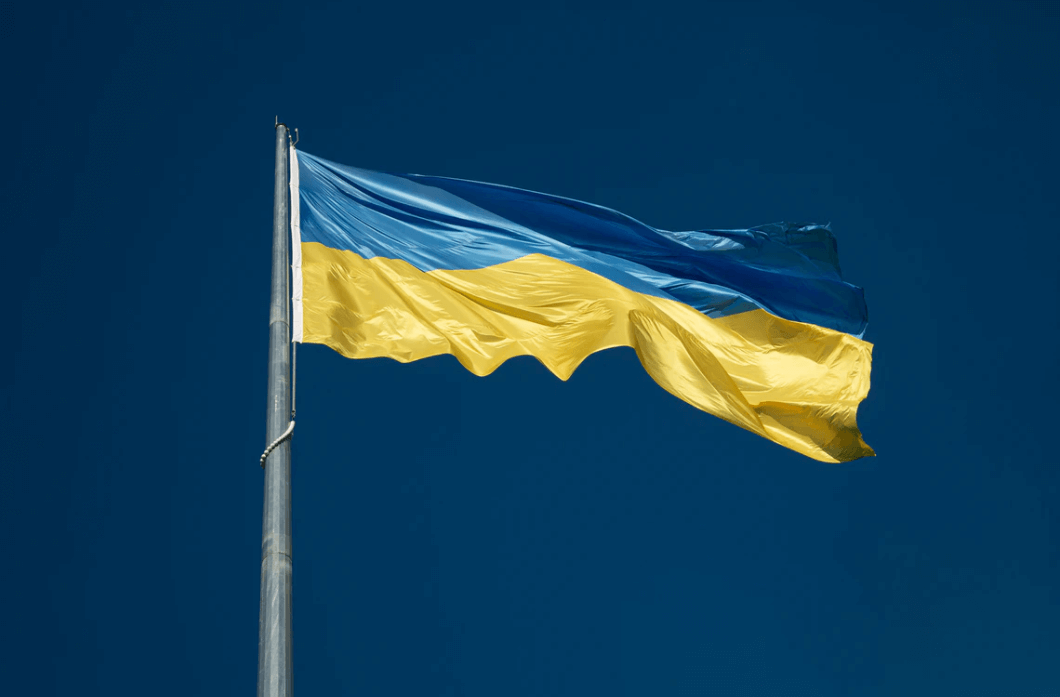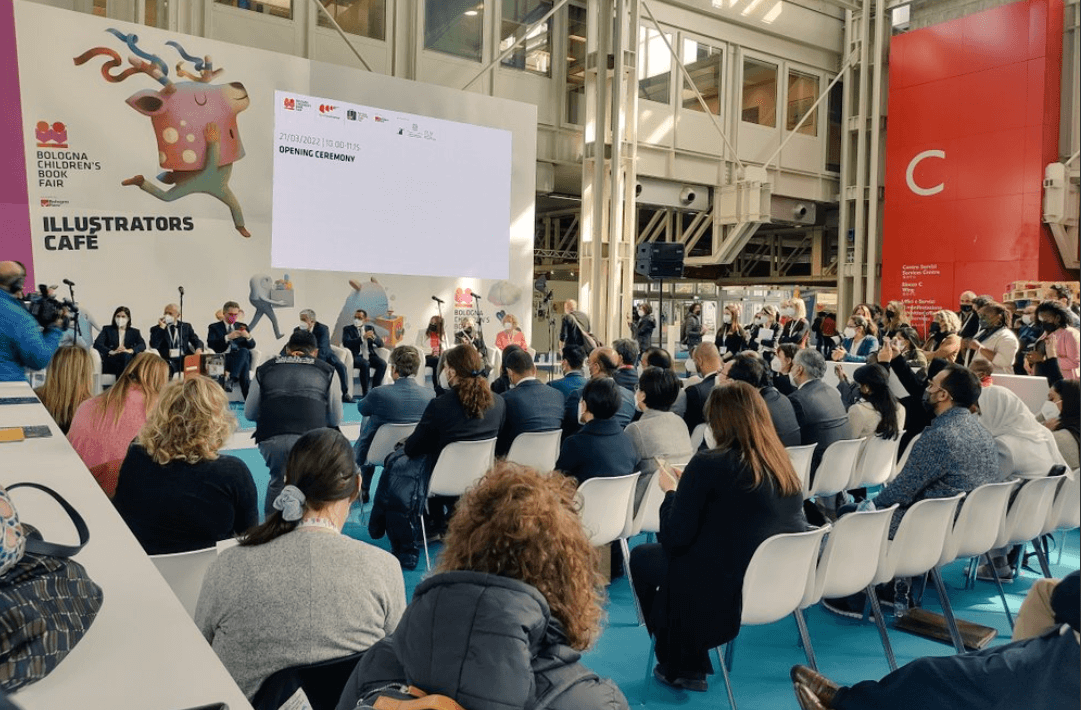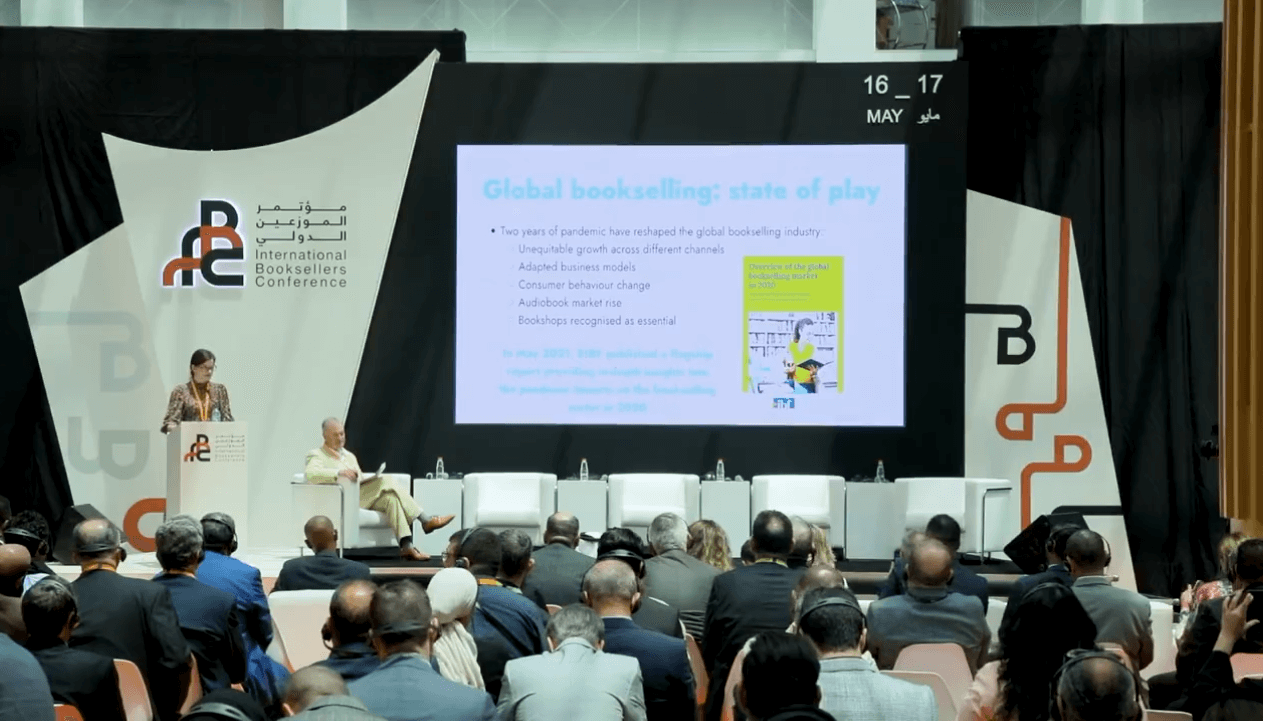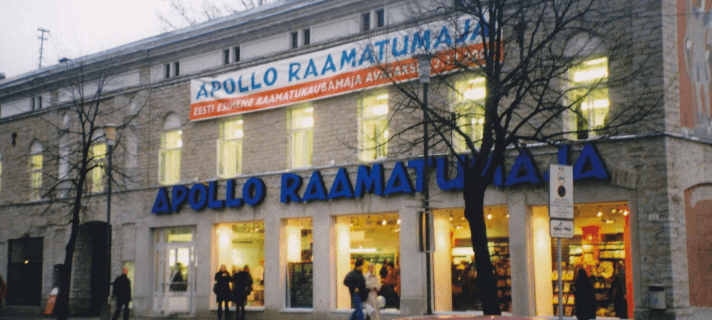Communications Advisor Jasmina Kanuric spotlights the new trends in bookselling at a two-day event
The Sharjah international booksellers conference brought together booksellers and book sector professionals from all over the world. Taking place in Sharjah, United Arab Emirates, the global bookselling community gathered for a two-day conference, filled with exciting panels, insightful keynotes, and various networking opportunities.

The conference was held over two days, between 16 and 17 May 2022. During the opening ceremony of the inaugural International Booksellers Conference at the Sharjah Book Authority Headquarters, the participants could hear from His Excellency Ahmed Al Ameri, Chairman of the Sharjah Book Authority, and Bodour Al Qasimi, President of the International Publishers Association.
In her opening keynote, Bodour shared her international perspective on the resiliency of the book industry and the role robust and creative collaboration between booksellers, publishers, libraries and authors will play in driving the industry forward.
Day 1
Panel 1: Digital, e-commerce, and social media

During the first panel, Kuo-Yu Liang moderated a session on best practice and case studies for engaging with bookselling communities and growing sales through digital channels, including websites, social media, newsletters and e-commerce.
The speakers included Mohamed Kandil, Molhimon Publishing and Distributions, UAE, Adedotun Eyinade, Roving Heights, Nigeria, Giorgia Russo, La Feltrinelli Internet Bookshop, Italy, and Nana Awere Damoah, Booknook, Ghana.
In their presentations, all panelists highlighted the importance of using social media analytics for shaping their strategy, as well as maintaining a continuous engagement with audiences.
Panel 2: Stock curation, presentation, and customer service

The second panel of the day explored how having well curated and presented stock to maximise browsing and discovery is essential to sales. In addition, staff trained in bookselling and customer service are also key skills to generate book sales.
Led by Simon Littlewood, international publishing consultant, the participants heard from Peter Kacmar, Ikar, Slovakia, Kenny Chan, (former) Kinokuniya Asia, Singapore, Remi Morgan, Laterna Ventures, Nigeria, and Sonia Draga, Sonia Draga Bookstores, Poland, during the panel.
“One of the most important things, as far as running a bookstore is concerned, is ensuring you have the right product when it is needed. Many years ago, I read a report, based on a survey that looked at a set of bookstores to determine what current bestsellers were. The survey was conducted during a peak buying time and it turned out that the percentage of stock out was very high, about 60%. Stock outs represent lost sales. That resonated with me, and I decided to always try to determine what the bestsellers are or will be and then ensure we will not run out of stock too early,” highlighted Remi, explaining how to manage the risks involved with maintaining optimum inventory as a book seller.
Closing keynote: Trends in international bookselling
.png)
EIBF’s communications advisor Jasmina Kanuric gave a closing keynote speech during the first day of the conference. In her presentation, Jasmina highlight the global bookselling state of play, comparing bookselling sales numbers in various key markets in the period of 2019 to 2021.
“I don’t think it’ll come as a surprise to anyone to hear that the two years of pandemic have reshaped the global bookselling industry. Booksellers across the world have seen their business models changing, having to move away from traditional bookselling overnight. At the same time, consumer behaviour changed, favouring a more digital approach, which also coincides with a spike in digital sales channels and the rise of audiobook market, among others. However, in many countries, bookshops are now considered essential businesses,” said Jasmina, focusing on the pandemic period.
However, in stark contrast to 2020, book sales data from 2021 shows that the global bookselling market is recovering from the pandemic (op. half of the surveyed markets in 2020 experienced a drop in sales by more that 10%). In 2021, in 70% of surveyed countries, the sales have increased by 5% at least. In a third of all countries, sales numbers reached +10% or more. In some cases, for example in France, end of year holidays sales broke all records, and contributed to such amazing sales numbers across the board.
However, there are a few caveats to this. First, and probably the most important one, not all growth is equitable. While overall sales grew, physical retail in brick and mortar bookshops remained impacted by lockdowns and lower customer traffic. On the other hand, the largest growth was seen in digital sales and for streaming services.
On discussing future development opportunities, Jasmina highlighted: “It’s important for booksellers to continue raising their digital presence and optimize their online sales channels, even with the return to more established business models. There’s also a need to build a pipeline of events, this used to be a staple in our industry, but the pandemic really disrupted that. Reviving high streets and attracting customers to city centers goes along with this – many people are still working from home regularly, so tapping into that customer segment is important.”
You can find Jasmina’s presentation here, while the full EIBF’s 2021 bookselling report will be released in the upcoming weeks.
Day 2
Opening keynote: Shelf life – chronicles of a Cairo bookseller
Nadia Wassef, writer and co-founder of Diwan Bookstore, started the activities on the second day of the conference. In her keynote address, Nadia praised the role of booksellers in communities, building on her long experience within the industry. Twenty years ago, Nadia co-founded the Diwan Bookstore in Cairo, without any previous experience. Her journey included many steep learning curves, but the Diwan bookstores are now a thriving business.
"Bookshops are characters with changing personalities, and bookselling is a conversation,” Nadia said, encouraging everyone to continue having many conversations with their customers, community, and colleagues around the world.
Panel 3: Working with publishers, authors, festivals and schools
Lola Shoneyin, Ake Book Festival, Nigeria, Gaurav Shrinagesh, Penguin Random House, India, Swati Roy, Bookaroo, India, and Tina Mamulashvili, Sulakauri, Georgia, spoke about many relationships booksellers juggle to ensure their stores reach the highest potential. Moderated by Therese Nasr, from the Ingram Publishing Services, the panel explored how being at the heart of a community and a destination for knowledge, information and reading for pleasure, means booksellers are constantly building and expanding solid partnerships with publishers, authors, festivals, and schools.
Panel 4: New business models

Bookshops are increasingly diversifying beyond the traditional models. We are seeing bookstores now with cafes, with non-book products, and taking advantage of new services. The fourth panel of the conference explored how diversification can work in practice, looking at experiences from four countries. The speakers presented what worked and what didn’t work in their circumstances, including the role of Print on Demand for booksellers.
The participants heard from Agne Ahi, a bookseller at Apollo bookstore chain from Estonia, Akshaya Rautaray, from Walking Book Fairs, India, Hassan Ali, Lightning Source, Sharjah, and Keith Thong, UBSM, Malaysia. From cinema partnerships to innovative book-tuk truck that bring books to children in rural areas in India, the speakers highlighted the important role of bookselling for enabling access to books and culture to all.
The conference closed with a final keynote speech, where Nana Lohrengel, General Secretary of the Umberto and Elisabetta Mauri Foundation, presented the Italian training initiative for booksellers. The school is now also running month-long practical placements, where participants get to experience first-hand how bookselling life is in different countries in the world.

















.png)





